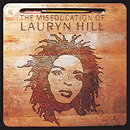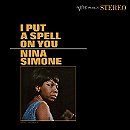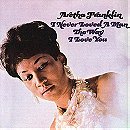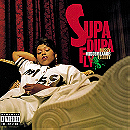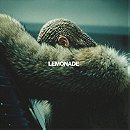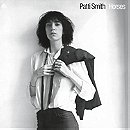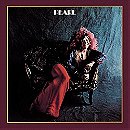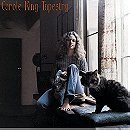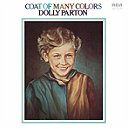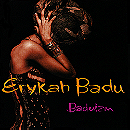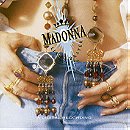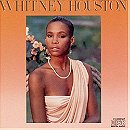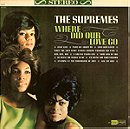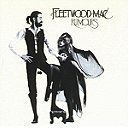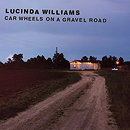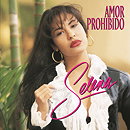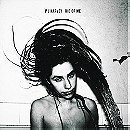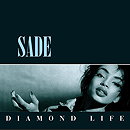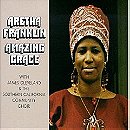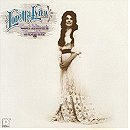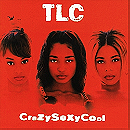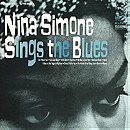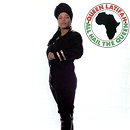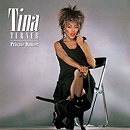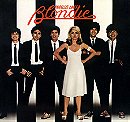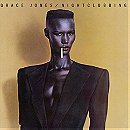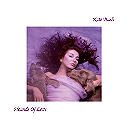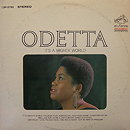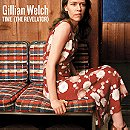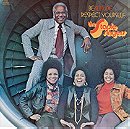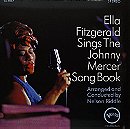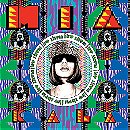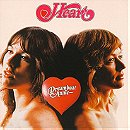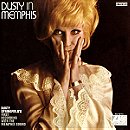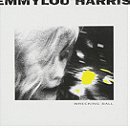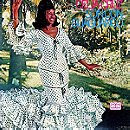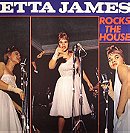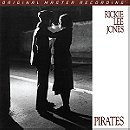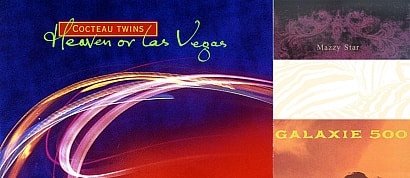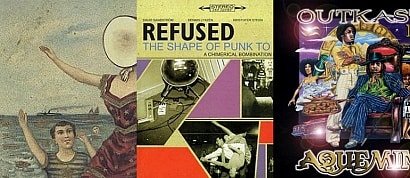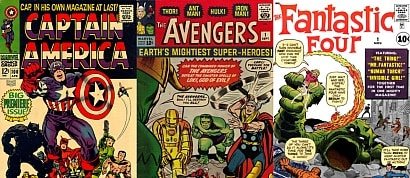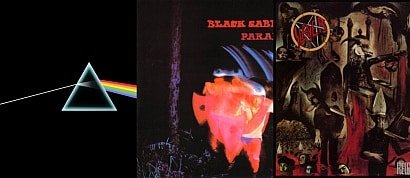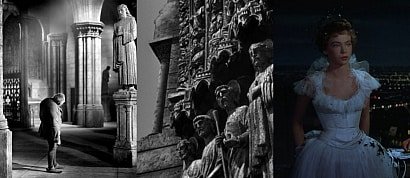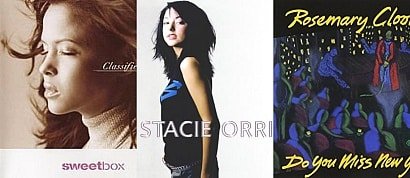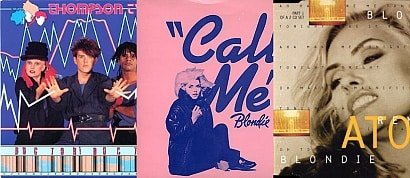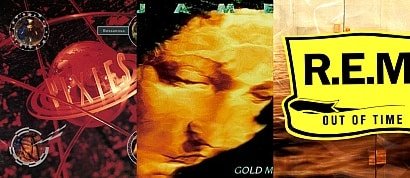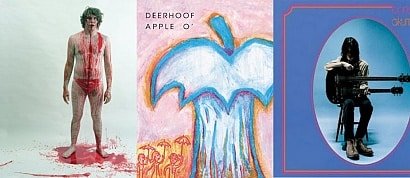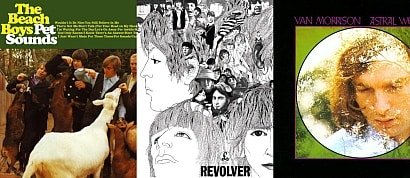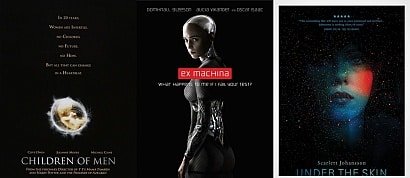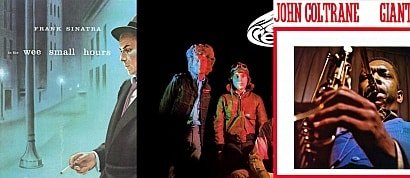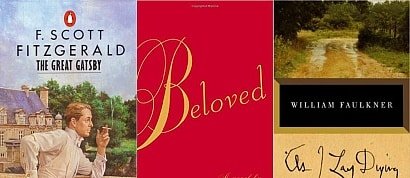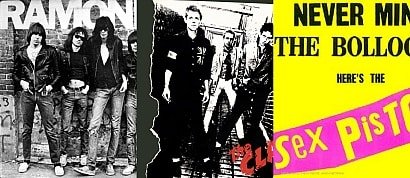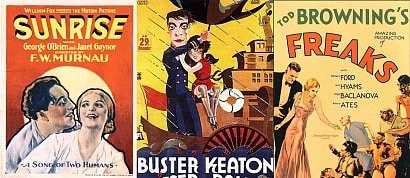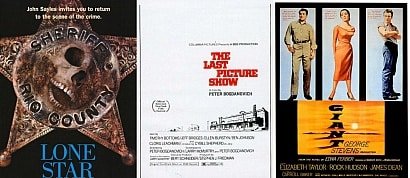The 150 Greatest Albums Made By Women
Sort by:
Showing 1-50 of 150
Rating:
List Type:
This list, of the greatest albums made by women between 1964 and the present, is an intervention, a remedy, a correction of the historical record and hopefully the start of a new conversation. Compiled by nearly 50 women from across NPR and the public radio system and produced in partnership with Lincoln Center, it rethinks popular music to put women at the center.
Blue - Joni Mitchell
After nearly fifty years, Blue remains the clearest and most animated musical map to the new world that women traced, sometimes invisibly, within their daily lives in the aftermath of the utopian, dream-crushing 1960s. It is a record full of love songs, of sad songs; but more than that, it is a compendium of reasonable demands that too many men in too many women's lives heard, in 1971, as pipe dreams or outrageous follies. "All I really, really want our love to do, is to bring out the best in me and in you, too," Mitchell sang to an elusive partner on the album's first track. That line, like so many of the melodic and lyrical gestures throughout Blue, is simple, but so radical. With the counterculture collapsing under the weight of its machismo-driven mythologies, women pushed forward with calls to imagine genuine equality in real life — in the private places where love and art is made. Blue articulates that demand and its effects more clearly than any other work of art. Musically, it reflects Mitchell's belief in what she's called "the feminine appetite for intimacy," with her nearly naked guitar playing, Appalachian dulcimer and occasional piano dominating the mix. Yet its rhythms and unexpected flights of melody also reveal Mitchell's movement toward the deeper improvisational waters of jazz, a sonic illustration for her love of crossing lines, the "white lines of the highway" or the generic ones of the recording studio. Lyrically Blue communicates both the cool of Joan Didion and the rawness of Sylvia Plath, and reminds us that emotional writing is only powerful when it is punishingly precise. The way Mitchell made the album was also revolutionary: She produced the sessions herself, directing a small band that included rival/peers like James Taylor (one of several lovers honored and exposed by her observations) and Stephen Stills. Mitchell would travel much farther on the lonely road she identifies in "All I Want," but Blue is her crossroads, where she bests her devils and invents a mode of expression that every singer-songwriter must master, but none can truly imitate. —Ann Powers (NPR Music)
JxSxPx's rating:


The Miseducation of Lauryn Hill - Lauryn Hill
The Fugees struck gold in the late 1990s with albums like The Score, a feat that also made their resident wordsmith, Lauryn Hill, a household name. But when Hill went out on her own two years later and dropped her debut, the neo-soul masterpiece The Miseducation of Lauryn Hill, she schooled everyone all over again in new and necessary ways. In it, Hill refuses to shy away from topics often left unspoken, injecting classroom love lesson interludes and hard-hitting lyrics about how money changes people in the banger "Lost Ones." Then there's the cautionary tale "Doo Wop (That Thing)," a bold song that unpacked sexual politics and not only scored Hill two Grammys, but also earned her the distinction of becoming the first woman since Debbie Gibson (with 1988's "Foolish Beat") to have a song that she simultaneously wrote, recorded and produced soar to the top of the Billboard charts. And that's just one song on The Miseducation of Lauryn Hill. The album, rife with Hill's biting rhymes and sharp turns of phrase, is a wonder from start to finish, from her smoldering duet with fellow R&B superstar Mary J. Blige "I Used To Love Him" to the unapologetic, plucky "To Zion," in which Hill details how people discouraged her from having a child in order to further her career: "Everybody told me to be smart / Look at your career, they said / Lauryn baby use your head / But instead I chose to use my heart." It's further proof that, yes, women absolutely can — and will continue — to have it all. —Paula Mejia (Contributor)
JxSxPx's rating:


I Put a Spell on You - Nina Simone
Nina Simone knew her own power. Not only did she cover the song "I Put A Spell on You," but she also used it as the title of her autobiography. The song, originally released in 1956 by Jay Hawkins, cemented his "Screamin" moniker. But in Simone's hands, it became something more, a kind of simmering sorcery.
Simone's 1965 album, also entitled I Put A Spell on You, is the closest you'll ever hear her come to pop. The swaying strings and delicate vocals of "Marriage is for Old Folks" give you a sense of Simone's incredible musical range. Plus it's a joyful reminder of the humor people forgot Simone possessed once she became the siren of the civil rights movement with searing songs like 1964's "Mississippi Goddam." The standout on this album, "Feeling Good," is a number that Simone transformed from a show tune for a barely-remembered British musical into a gold-standard strutter. Simone's version trades wide-eyed pouting for unadulterated power, from the opening bars — featuring her voice and nothing else — to the brass line that bows down to her pipes. By the time she careens towards the climax, you know this woman has indeed put a spell on you — and just about anyone else that dares get in her way. —Audie Cornish (Host, All Things Considered)
Simone's 1965 album, also entitled I Put A Spell on You, is the closest you'll ever hear her come to pop. The swaying strings and delicate vocals of "Marriage is for Old Folks" give you a sense of Simone's incredible musical range. Plus it's a joyful reminder of the humor people forgot Simone possessed once she became the siren of the civil rights movement with searing songs like 1964's "Mississippi Goddam." The standout on this album, "Feeling Good," is a number that Simone transformed from a show tune for a barely-remembered British musical into a gold-standard strutter. Simone's version trades wide-eyed pouting for unadulterated power, from the opening bars — featuring her voice and nothing else — to the brass line that bows down to her pipes. By the time she careens towards the climax, you know this woman has indeed put a spell on you — and just about anyone else that dares get in her way. —Audie Cornish (Host, All Things Considered)
I Never Loved a Man the Way I Love You - Aretha Franklin
In the universe of popular music, this album exploded like a brand new sun. It took Aretha Franklin eleven songs to shift the canon of AM radio away from the realm of girlish glee to the cataclysms of womanly love. I Never Loved a Man connected with black and white audiences and became the biggest commercial success of her building career. On this Atlantic Records debut, Franklin trucks confidently in the desires of a modern-day woman. In a word, she's "real" — plain-spoken and passionate, without guile or undue glamour. The album has funky rhythms, of course. And horns. And some of the most memorable hooks in popular music. Franklin's re-imagining of the Otis Redding single "Respect" is now on the National Recording Registry of the Library of Congress, reportedly as a feminist anthem. But the song is also redolent of black consciousness and pride. And yet, it's Franklin's renderings of vulnerability in love that make the album universal. She wrote or co-wrote some of the best-known songs of her career for the record, including the title track (her first million seller); "Baby, Baby, Baby" and "Dr. Feelgood." For better or worse, each song on the album sounds like she lived it. Producer Jerry Wexler called the famously private Franklin "Our Lady of Mysterious Sorrows." —Gwen Thompkins (WWNO)
JxSxPx's rating:


Supa Dupa Fly - Missy 'Misdemeanor' Elliott
This album dismantled the hip-hop boy's club. For the first time in history a woman rapped, sang, wrote and produced every song on a major rap release. Within the first sounds that we hear, Missy Elliott invites you to become engulfed with the undeniable Virginia-based funk, a region that's equally Southern and Eastern, through aquatic synth sounds paired with earthy drum patterns. The result? A vibe that's both familiar and futuristic. Without selling overly sexualized imagery and without imitating hypermasculine gangster rap, Elliott awards us with pure originality. She didn't just change the scope on how we interpreted sexy and gangster: The genres bended to her liking. The sound shifted to jazz with her vocal improvisations and scatting on "The Rain (Supa Dupa Fly)," over an Ann Peebles sample. It became the blues on "Beep Me 911," a somber song about uncertainty and urgency. And her esteemed comrades Busta Rhymes, Timbaland, Lil Kim, Aaliyah, Da Brat and Ginuwine complemented and fit comfortably within the theme of the perfect album. Elliott presciently knew her music was groundbreaking and reminded us throughout the record with her boisterous lyrics. Today, Supa Dupa Fly remains one of the best hip-hop records of all time, and its level of innovation and musicianship remains unparalleled. —Stasia Irons (KEXP)
JxSxPx's rating:


Lemonade - Beyoncé Knowles
One of the most recent projects to be part of our new canon, Lemonade is a masterful excursion through terrains at once visually fantastical and emotionally all too real, exploring shattered trust in a broken relationship; the singular pain borne by the mothers of men like Trayvon Martin, Eric Garner and Michael Brown; the battering down of black women throughout history; the scars of all of these kinds of trauma; white-hot rage and hopeful, though not blind, reconciliation. The inventive, stunning Lemonade film — credited to seven directors, with each dream-like scene lapped atop the next — has already generated a thousand points of exegesis (Was that yellow dress and gushing water in honor of the Cuban orisha Oshun? Was it coincidence that while wearing that dress, Bey smashes a closed-circuit TV with her baseball bat?). But those visual shifts also provide sinew and shape to the hugely varied sonic palette that Beyoncé employs as she flits between genres with everyone from Jack White to The Weeknd. Lemonade is as much a pastiche musically as it is visually, but taken in totality, it is so artfully constructed that it feels right. Pop music has only very rarely sprung from the mind or talent of a single auteur, but few solo artists have conceived of collaboration in as wide-ranging, or as dimension-shifting, a way as Beyoncé has on this project — and she is the one most definitely in command. —Anastasia Tsioulcas (NPR Music)
Horses - Patti Smith
The very nature of Patti Smith's debut album Horses rails against what many other "best of" albums are celebrated for — broad appeal, sonically pleasing aesthetics and hits. Horses is confrontational, defiant and completely unafraid of the ugly. And so was its author, who in 1975, for arguably the first time in music, set the lyrical stage for academia and animalism to writhe together; for the sophisticated and heady virtues of capital-P Poetry to crash into the visceral, bodily base of rock and roll. Any beauty on Horses feels like a bi-product of story — from Smith's breathless bleating to wailing and warbling against collaborator Lenny Kaye's characteristically jagged guitar to her historic presentation on the album's cover. As photographed by Robert Mapplethorpe, Smith's unapologetic androgyny predates a time when that was an en vogue or even available option for women, and represents a seminal moment in the reversal of the female gaze. Smith is looking at you, and could care less what you think about looking at her. That was radical for a woman in 1975. It is still radical today. There are legions of artists who cite Patti Smith's Horses as an earth-shattering influence, from Courtney Love to R.E.M's Michael Stipe to Garbage's Shirley Manson to The Smiths' Johnny Marr — but they don't necessarily reflect Smith's influence in terms of sound so much as attitude. It was her unfiltered, fearless singularity that galvanized believers in the Church of Smith not to become more like her but to become more like themselves. And for that, we owe Smith everything. —Talia Schlanger (Host, World Cafe)
JxSxPx's rating:


Pearl - Janis Joplin
One of rock's most misunderstood artists, Janis Joplin was often portrayed as victim, a dysfunctional mess who only fronted a band, who didn't have the power to call the shots. Until Pearl. In 1971, with Monterey Pop, Woodstock, and Festival Express behind her, the vision of blues, rock and soul coming together with a band that could follow her was realized. It was her high point, and tragically, she didn't live to see it. Janis had put the band together — saying "it's my band, it's finally my band" — and approved all the songs. (It was unusual at the time for a female artist to actually have that control, the very reason we need this list.) She wrote the opening track "Move Over" and the a cappella "Mercedes Benz," which was recorded just days before her passing. Janis once said, "None of us are who we started out as." She was a "good girl" as a Texas kid, in a stable home full of music, with her Mom's Broadway musicals like Porgy and Bess as her favorites. Bad skin and some extra weight brought the usual social problems once she hit high school, and she drifted toward the creative crowd. Once she made it to San Francisco, she discovered how her heroes, like Bessie Smith, could inspire her voice. She became known as Pearl — sassy, fearless, sexy, uninhibited, not one to ever hold her tongue. She was fast and free with her sexuality, like Bessie. And she called the shots. Pearl hit No. 1 on the charts, making Janis Joplin one of rock's most successful artists.You can't help but wonder what she would be doing now. —Rita Houston (WFUV)
JxSxPx's rating:


Back to Black - Amy Winehouse
The late '00s saw an explosive, cross-genre revival of retro-sounding soul music that continues to shape the pop landscape to this day. Arguably, that trend's catalyst was Amy Winehouse's earth-shaking final album. Working closely with producers Mark Ronson and Salaam Remi, plus a then-little-known Brooklyn soul ensemble called the Dap-Kings, the young, beehived-and-tattooed London singer pivoted from jazz to the velvet musical vocabulary of '60s girl groups and Motown. Yet however smartly it evoked the sounds of an earlier era, Back To Black could never have been mistaken for anything but contemporary — or anyone but Winehouse. Funk and R&B grooves snapped through a post-breakbeat filter; her lyrics about lost love and self-destructive habits pulled zero punches; her delivery came fluid as exhaled cigarette smoke. Even "Tears Dry On Their Own," whose arrangement reproduced Tammi Terrell and Marvin Gaye's version of "Ain't No Mountain High Enough" down to the drum fills, sounded magnificently fresh with Winehouse's lead line — a romantic duet flipped into a frank, lonely rendering of a breakup's aftermath. This was a soul record that wouldn't forget that hip-hop happened, a thoroughly modern tract on heartbreak whose bluntness made it believable. —Rachel Horn (NPR Music)
JxSxPx's rating:


Tapestry - Carole King
With Tapestry, Carole King cemented her place as one of the key architects of 20th-century popular music. Here, she fully claims the spotlight, not only as a top-notch composer, but as a deeply soulful lyricist and singer. Considered her crowning achievement by critics, record sales of over 25 million confirmed that the public agreed. From "I Feel the Earth Move" to "You've Got a Friend," the track list is a veritable master class in pop standards with King, one of America's most dependable hitmakers, flexing in a new genre. With her unadorned piano wrapped in plainspoken lyrics about the pulls of kinship and self-actualization, it's no wonder the record stands the test of time as not only a bedrock in the singer-songwriter genre but also as the soundtrack of suburban feminism of the early 1970's. King's evolution as both an artist and woman are perhaps most evident in the grown-up version of "Will You Love Me Tomorrow?" that appears on Tapestry. The first major writing credit for the then-teenaged King and lyricist husband Gerry Goffin, which hit No. 1 for The Shirelles in 1961, is transformed from a girl's yearning question into the bittersweet doubts of a woman wise enough to know that even true love doesn't always last "til the night meets the morning sun." —Jill Sternheimer (Lincoln Center)
JxSxPx's rating:


Coat of Many Colors - Dolly Parton
For most of Dolly Parton's performing career, it's been impossible to separate the sequins and spangles of her outsize image from her humble, hardscrabble mountain roots, so intertwined are the two in the persona she's presented. Her 1971 album Coat of Many Colors was a formative moment both in the way it helped established her artistic self-sufficiency — no longer viewed simply as Porter Wagoner's "girl singer," she was making her mark on the country charts as a standalone singer-songwriter — and how it sketched the contours of her enduring narrative. It's hard to overstate the importance of the self-penned title track; through the lens of plainspoken reflection, Parton's lilting folk-country ballad wove together a touching account of her mother's Appalachian ingenuity and her own alternative vision of beauty and glamour, grounding both in a homespun yet nonetheless aspirational ethic that would frame her music forever after. Released during a fruitful period in country's autobiographical storytelling tradition, during which peers like Loretta Lynn and Tom T. Hall were also doing important work, the song is one of the reasons that Parton came to be recognized as the tradition's archetype. With the remainder of the album, mostly written by her with a few Wagoner compositions thrown in, she laid out more of her musical template: her supple modernizing of ancient-sounding folk's gothic, modal melodies and pastoral sentimentality; her fabulously knowing backwoods wit; her amplifying of emotions shaken loose by adult heartbreak; her openness to pop's buoyancy. She was, it would become clear, a splashy, savvy, broadly appealing complete package like neither the country nor pop worlds had seen. —Jewly Hight (Contributor)
JxSxPx's rating:


Baduizm - Erykah Badu
Erykah Badu is not afraid to repeat herself. Baduizm begins and ends with "Rim Shot." The songs in between echo themselves and each other over and over and over again — "On and On" is referenced in "Appletree"; "Certainly" and "Certainly (Flipped It)" are mirror images; there are two different songs called "Sometimes." In "No Love," Badu repeats the same phrase ("You don't show no love") eighteen times. But time doesn't seem to be a concern for Badu — she sings like she's having a conversation that might go on forever, accidentally. Lines like "Take your time," "I don't need nobody telling me the time" and "I'll see you next lifetime," are littered throughout out the album. For Badu, if there's a thought worth articulating, it's worth ruminating. And when she's not doing it herself, her sound is still echoed by people around her, like The Roots, Kendrick Lamar, Andre 3000, Mos Def, India Arie and Drake. —Leah Donnella (NPR Staff)
Like a Prayer - Madonna
In 1989, AIDS was ravaging cities everywhere, particularly New York, Los Angeles and San Francisco. The Supreme Court had begun to chip away at abortion rights. Activists were handing out condoms in the streets and fighting the indifference of the Reagan Administration, which instead supported the abstinence-only policies of fundamentalist Christians and the Catholic Church. Madonna's album Like A Prayer, released that same year, daringly takes on the struggles of a generation that refused to accept spirituality without sensuality. Through interweaving gospel, funk, soul and pop, the album's songs raise questions about religion, sexuality, gender equality and interdependence. For one thing, the title song opens with a few seconds of a hard rock guitar that stop abruptly and make way for a gospel choir and an organ. The lyrics suggest a girl who might experience God as a lover — or is it a girl who loves a man as if he is God? While "Oh Father" was in many ways about Madonna's own father, it goes beyond her relationship with him and instead alludes to someone who abuses power. And when all those activists weren't agitating in the streets they were dancing to "Keep It Together," Madonna's tribute to her family. While most critics saw this as the album where Madonna went from bubblegum pop to true artistry, that wasn't the only thing she did with Like a Prayer. With this album she also led the way for a new generation top female pop stars to express themselves. —Laura Sydell (NPR Staff)
JxSxPx's rating:


Whitney Houston - Whitney Houston
From sweet flirtation to full-throated proclamation, Whitney Houston's vocal range remains fresh and vibrant some three decades after this album was released. There are just 10 songs on this debut album by a daughter of soul royalty (her mother is Cissy Houston; her cousin, Dionne Warwick and her godmother, Aretha Franklin). But it's chock full of Whitney classics, including the lovelorn ballad "All At Once" and the breezy "Saving All My Love for You." This album also includes the perfect '80s song, "How Will I Know," though admittedly it's hard to separate the iconic video from the song. Whitney bobbing her head with a silver bow in her hair, hot pink lips glimmering while crooning, "There's a boy!" captures the joy and innocence of first love. And then, of course, the reason so many of us bought this album in the first place: the show-stopping singalong, "The Greatest Love of All." Like her 1992 hit version of Dolly Parton's, "I Will Always Love You," this song is a cover that Whitney made a signature. Her velvety voice defiantly proclaiming, "No matter what they take from me they can't take away my dignity," was my power anthem as an 11-year-old, and I still revisit it. We all need to be reminded from time to time of the beauty we possess inside. Yes, Jermaine Jackson and Clive Davis had hands in this album, but no one outshines Whitey's performance throughout, and it's one that sustains over time and trends. —Nina Gregory (NPR Staff)
JxSxPx's rating:


Where Did Our Love Go - Diana Ross & the Supremes
It's surreal to go back and listen to The Supremes' breakout album all these years later, when most of the singles on it have become synonymous with oldies FM radio and baked into our nostalgic memories of early R&B. Hit singles were the name of the game back in the early 1960s and they had started pouring out of Detroit's Hitsville U.S.A., the cramped Motown studio where Diana Ross, Florence Ballard and Mary Wilson would hang around every day after school hoping to clap and sing in the background of someone else's #1 song. R&B fans were used to women appearing as backup singers, but The Supremes and their peers like The Shirelles and Martha and the Vandellas turned the whole game around. A woman's voice could deliver the lead as well as support it, harmonies locking together, a squad unified in power and voice. Where Did Our Love Go captures The Supremes in that tender moment between finding their footing as a "girl group" and rocketing to superstardom; by the end of the decade, they would be Motown's best-selling act, and will have paved the way for a long lineage of powerhouse trios like the Pointer Sisters, En Vogue and Destiny's Child. —Andrea Swensson (Minnesota Public Radio)
Rumours - Fleetwood Mac
For those of us who didn't live through the late 1970s, the Fleetwood Mac story — of sex and drugs and rock and roll and epic songwriting sessions in the middle of it all, this member breaking up with that member and taking up with another, piles of cocaine, or was it champagne? — is beyond tantalizing. But it wouldn't be anything more than tabloid trash if the band hadn't made the music it did, particularly on the monster of an album, Rumours. Stevie Nicks, Christine McVie, Lindsey Buckingham, Mick Fleetwood and John McVie set out to make a record with no fillers, and they very nearly hit their mark. When Rumours came out, it topped the British and U.S. charts and won the Grammy for Album of the Year, eventually becoming one of the best-selling albums of all time. Why? Rumours is the sound of a band bending but not breaking, led by two women who wrote songs about the full range of human emotion. It's Stevie responding to Lindsey singing "You can go your own way," with "Dreams," a song she wrote in 10 minutes, that became the band's only Billboard Hot 100 #1 hit ever. It's Christine McVie crooning "You Make Loving Fun" to her new love, while her ex plays bass. And in the depths of all the romantic turmoil that was going on within the band, Christine wrote "Don't Stop," cheerfully reminding everyone to look ahead to tomorrow. It's personal, it's relatable, and because it captures the whole scope of a romantic experience, from new love through breakups and back again, it's a mainstay. —Sarah Handel (NPR Staff)
JxSxPx's rating:


Control - Janet Jackson
There would be no Rhythm Nation, Janet, or Velvet Rope without Control. This was the breakout album for then-19-year-old Janet Jackson, who until then was fondly known as Michael Jackson's little sister, Penny from Good Times and Willis' girlfriend on Diff'rent Strokes. She fired her dad as her manager, got with producers Terry Lewis and Jimmy Jam from The Time, and made an album that clearly said "I'm a grown-ass woman," in case anyone was confused. The album, released February 1986, took on important issues such as sexual harassment, safe sex and abstinence, and we sang right along with her, making hits out of "What Have You Don't For Me Lately," "Nasty," "Control," "When I Think Of You," "Let's Wait Awhile" and "Funny How Time Flies (When You're Having Fun)." But Janet did something especially pivotal with the video for "Pleasure Principle," another single from the album. She walked alone into an empty loft with kneepads on, kicked over a chair, cabbage-patched and clarified for those in the cheap seats that she was as great a performer as her big brother: "Ba-by you can't hold me down! Ba-by you can't hold me dow-ow-own!" —Tanya Ballard Brown (NPR Staff)
JxSxPx's rating:


Car Wheels on a Gravel Road - Lucinda Williams
Lucinda Williams had released four albums when she began recording songs for what would, years later, become Car Wheels On A Gravel Road, now an Americana standard. On the album, Williams successfully married rural snapshots with articulate, near-photographic songwriting. The combination resulted in a vibrant and vividly-detailed album, especially for the time. In the late 1990s, alternative country was still a nascent scene with a palpable absence of both female voices and female songwriters in the genre. Car Wheels On A Gravel Road changed all of that. The album won the 1998 Grammy Award for Contemporary Folk, and also went gold — a first for Williams. Tracks like "Can't Let Go" and "Right In Time" became modern classics and solidified Lucinda's position as one of the best American songwriters of our time, thanks in part to her talents for capturing granular slices of life, delivering them with a poet's eye and a craggy, world-weary voice. —Jessie Scott (WMOT)
Amor Prohibido - Selena
It's tough to overstate the impact and power Selena Quintanilla had across the United States and in Latin America as the Queen of Tejano music. Her humility, talent and sense of style influenced generations of Latinos enamored with and overwhelmed with pride of their culture — a culture often perceived to be less than. With her music, she made the voices and experiences of Latinos in the United States visible. That's especially true of her album Amor Prohibido. Her last release before she was killed in 1995, Amor Prohibido is an ageless cultural symbol that was meant to transcend a moment in history. It did, to say the least. It became the best-selling U.S. Latin album of all time, went platinum, had four No. 1 singles and put Tejano music on the map. With Amor Prohibido, Selena was able to reach larger audiences with her more experimental and cross-cultural sounds, including a fusion of Mexican mariachi and Colombian cumbia sounds, and elements of R&B, techno, pop and the ballads known as corridos. Writing about her is surreal, though. I remember hearing my aunts and mom sing "Bidi Bidi Bom Bom" growing up. The floors would tremble when this song came on as everyone was pulled to the dance floor. In college, my friends and I would blast these songs to find some kind of familiarity when everything felt so different from us. She didn't break barriers with this album as much as she tore them down.—Jessica Diaz-Hurtado (NPR Staff)
...Presenting the Fabulous Ronettes Featuring Veronica... - The Ronettes
The British Invasion hit American shores in February 1964, changing the course of American pop for the foreseeable future — but three girls from Spanish Harlem invaded the British first. Twenty-year-old Veronica Bennett, her sister Estelle and their cousin Nedra Talley arrived at Heathrow that January with a Billboard No. 2 hit, "Be My Baby," under their belts, and when they met The Beatles, the four mop tops were already adoring fans (so was their opening act — The Rolling Stones). "Be My Baby" — the centerpiece of the trio's debut album — would hook millions more, rock royalty and commoners alike, with its heart-thumping kick drum, plaintive whoah-oh-oh's and dense production courtesy of Phil Spector's Wall of Sound, which dependably takes the listener's breath away by filling every available molecule of air with music. The studio work is wizardly, but it's Veronica — the future ex-Mrs. Phil, and the forever Ronnie Spector — who is the magic element, switching between rock and roll swagger on the loose-hipped "(The Best Part) of Breaking Up" and demure teen yearning on "I Wonder," plus a loose, muscular, full-throated take on Ray Charles' "What'd I Say," all stamped with her indelible sweet-tart voice. Everything about The Ronettes always teetered on the blissful edge of too much — too-tight dresses, too-bountiful beehives, too-heavy eyeliner drawn to a razor-sharp wing, and Fabulous Ronettes is an overflowing platter. But whoah-oh-oh is what passion sounds like, when transcends the capacity of language. —Alison Fensterstock (Contributor)
JxSxPx's rating:


Rid of Me - PJ Harvey
In 1992, PJ Harvey emerged from the rural town of Yeovil, England, and into the musical world with the seething tune "Sheela-Na-Gig." While Harvey's subsequent debut album Dry was a radical step forward, it didn't prepare anyone for her uncompromising next album — her best — that would follow the next year, Rid Of Me. The album was pulled together against all odds, and you can hear it in the stark recording: Done in isolation, while the band sparked with internal tensions and Harvey's songwriting directly bristled against Steve Albini's abrasive production. Yet from the opening chords of Rid Of Me's title track — in which Harvey crooned "Tie yourself to me / No one else, no / You're not rid of me" — she made it perfectly clear on this album that not only was she not intimidated by having all eyes on her, but also that she wasn't going anywhere. Behind the thrum of guitars on "50 Foot Queenie" she delivered a series of declarations that have rightful places as anthems: "I'm number one / Second to no one ... I'll tell you my name / F-*-*-* / Fifty foot queenie / Force ten hurricane." On Rid Of Me, Harvey also proved that she wasn't just capable of hanging with the boys; she had surpassed them entirely. "Can you hear can you hear me now / I'm man-sized," she roars on the eponymous song, one that, among others, once caused her contemporary Courtney Love to declare: "The one rock star that makes me know I'm shit is Polly Harvey. I'm nothing next to the purity that she experiences." —Paula Mejia (Contributor)
Diamond Life - Sade
Sade's album Diamond Life dropped when some of pop's biggest stars like Michael Jackson, Madonna, Prince and Duran Duran were topping the charts with their bright, punchy songs. Sade stepped into the middle of that and slowed the pace down with a subdued, graceful album that was simultaneously soulful and jazzy. Diamond Life wasn't the kind of album on constant rotation at the club: People listened to this album in a much more intimate way, especially as many of its songs focus on themes of love and undoubtedly provided the soundtrack to many romantic evenings for couples around the world. It wasn't all love, though. Diamond Life shone with socially conscious songs like "When Am I Going to Make a Living" and the moving Timmy Thomas cover "Why Can't We Live Together." Some critics at the time seemed genuinely surprised that someone so attractive (Sade was formerly a model) could sing with such accomplishment, as though somehow beauty was a reason for skepticism. But with Diamond Life, Sade stormed in with timeless music that featured both groove and sophistication. —Alisa Ali (WFUV)
Amazing Grace - Aretha Franklin
Aretha Franklin got her start in church, singing at her minister father's side as a young girl. She found critical success in the secular market, but her best-selling album, 1972's Amazing Grace, represented a grand homecoming. For two days, Franklin sang with mentor Reverend James Cleveland and his choir, the Southern California Community Choir, at the New Temple Missionary Baptist Church in Los Angeles. Throughout the hour and a half of the recording, Franklin whips and wields her incomparable instrument in a way that leaves little room for any reaction other than awe. The record lives and breathes with the raw emotion of the spirit: Franklin connects with her choir and her audience through laughter and shouts, testimonies and affirmations. It's participatory, but never does the session's control leave the hands of Franklin herself. In a church that was filled to capacity, The Rolling Stones' Mick Jagger and Charlie Watts were students of Franklin; the group's next album, Exile on Main Street, wound up being their most gospel-influenced record to date. Amazing Grace is audio evidence that gospel is best experienced in the house it lives in. And it was proof to industry executives and fellow musicians alike that gospel music could chart, and sell. —Kiana Fitzgerald (Contributor)
JxSxPx's rating:


Coal Miner's Daughter - Loretta Lynn
If Loretta Lynn is one of the queens of country music, Coal Miner's Daughter is the jewel in her honky-tonk crown. By 1971, Lynn was already a well-established Nashville songwriter, had sung her way onto the Grand Ole Opry, and had a reputation for her boundary-pushing, feminist songs about infidelity and domestic abuse. While the album doesn't betray those roots, its most beloved song is a sentimental autobiography; furthermore, Coal Miner's Daughter tells the story of Lynn's childhood in Butcher Hollow, Ky. She grew up with eight siblings, a mother who worked hard to care for them, and a father who worked in the Van Lear coal mines, an experience that's immortalized in the album's title track: "Well I was born a coal miner's daughter / In a cabin, on a hill in Butcher Holler / We were poor but we had love / That's the one thing that daddy made sure of / He'd shovel coal to make a poor man's dollar." It became her best-known song, the title of her autobiography and a 1980 Oscar-award winning movie about her life. But sadly, her father never lived to hear the album, or any of Lynn's recordings. He died of black lung disease in 1959. —Lauren Migaki (NPR Staff)
Little Plastic Castle - Ani Difranco
Indie folk pioneer Ani DiFranco was well into her career, as well as heading her Righteous Babe Records, when she released her most sonically ambitious album, Little Plastic Castle. DiFranco, who had been consistently releasing albums once a year since 1990, had just come off of promoting the live album Living in Clip and took that band back to the studio in Austin, Texas. There, they crafted an album that reflected the true explosive energy of her live shows. Lyrically, the songwriting is not necessarily as challenging or refined as her previous work. But DiFranco's words resonated with her audience, which expanded considerably following this release. The album scored her highest ranking on the Billboard charts, and with it gave the alternative mainstream a chance to experience the potency of this remarkably independent and outspoken songwriter. Young teenagers in suburban America soon began singing her songs at open mics, playing her music on their college radio stations and making sure their "great female singers" mix tapes all had an Ani song. The album's lyrics dealt with infidelity, relationships across the gender spectrum and fighting for respect. And although some misunderstood her outspokenness for anger, many found her music completely cathartic, seeing themselves reflected in her pain and struggle. —Cindy Howes (WYEP)
CrazySexyCool - TLC
The album title says it all. With this record, TLC invented a new hybrid adjective and created a sound to match. CrazySexyCool posited that there's no one way to exist — as a woman, as a partner, as a friend. These songs are about women who are always real, women who can be unabashed about their sexuality, tender or righteously distant, depending on the moment. They're wise without being condescending or aloof; Chilli, T-Boz and Left Eye make it plain that they're telling the truth. Their delivery embodies "crazysexycool," too. In "Waterfalls," for example, the gone but not forgotten Left Eye serves thirty seconds of flow that rank among the best of all time. It should go without saying that almost all pop music to come after this record owes it a debt. But TLC's impact went way beyond the music. The question of whether their project is "feminist" is perhaps misguided; the popular understanding of the word failed to even include them. But with baggy clothes, condom accessories celebrating safe sex, an undying commitment to each other — and yes, a knack for exerting control over the very definitions of "sexy" and "cool" — TLC was an undeniable revolution. —Jenny Gathright (NPR Staff)
JxSxPx's rating:


Little Earthquakes - Tori Amos
Tori Amos was dropped by her record label following the lukewarm success of her synth-pop act, Y Kant Tori Read. So the singer-songwriter was forced to reevaluate. Given that said project hadn't truly represented the image or music Amos wanted to create, she looked inward to find her true self. The introspection paid off, and yielded her game-changing 1992 debut, Little Earthquakes. On it, Amos sung brutally honest lyrics about typically taboo topics including but not limited to sex, religion and sexism. Little Earthquakes was so earth-shattering upon its release that it almost immediately became a standard influence for idiosyncratic singer/songwriters — annoyingly, any woman playing a piano was hereby compared to Amos following the release. Little Earthquakes is rife with evidence that Amos was and is a bold musician, but that's nowhere clearer than on "Me and a Gun." The song is based on her own account of sexual assault and started a movement, as well as her assault and rape crisis hotline RAINN that encouraged victims of violence against women to speak out. Through Little Earthquakes Tori exuded sexual empowerment that was not for anyone else but her, which, in turn, transformed her into an icon. —Cindy Howes (WYEP)
Nina Simone Sings the Blues - Nina Simone
The High Priestess of Soul, Nina Simone, was 34 years old in 1967. She'd been making music her whole life — she was trained as a classical pianist — and, at 21, started singing in clubs. For the next decade, she bounced around, recording jazz and blues standards, and steadily earning a reputation as a remarkable performer. People loved watching and hearing Nina Simone perform, though critics weren't quite sure what to do with her. Was she a blues singer? A jazz pianist and performer? And what about those original songs — how did they fit in? When Simone made the move to RCA in 1967, those questions started to become less important, and the focus now found itself on her voice — that voice! Slip-sliding between sultry sensuality ("In the Dark"), heart-wrenching reminiscences ("My Man's Gone Now") and the biting social commentary ("Backlash Blues," a song she co-wrote with Langston Hughes), Nina Simone proved, with Sings the Blues, that hers was a voice capable of anything. It made people fall in and out of love, it made them pay attention to the past, and it forced them to become aware of the social inequalities all around them. —Elena See (Folk Alley/Minnesota Public Radio)
Jagged Little Pill - Alanis Morissette
Every teenager is expected to be angry at some point over the course of her adolescence. But not every teenager manages to shatter expectations surrounding women worldwide, as well as their access to and expressions of that anger. At age 19, the Canadian pop star Alanis Morissette started work on Jagged Little Pill, the 1995 record that would ultimately sell 40 million copies and which offered an unprecedented lyrical vocabulary for processing and experiencing young womanhood. A generation of listeners smashed plates to this record, and then gathered up the pieces and built something better. Jagged Little Pill contains flawless angry songs, but it also contains perfect songs of introspection and self-belief, radically centering the narrative on (female) self instead of (male) other. Often miscast as a breakup album, Morissette's blockbuster is really a fully-formed exploration of being a person feeling their way through the world. It broke ground by giving equal space and value to emotions that women are expected to express publicly, as well as those they aren't. —Katie Presley (Contributor)
JxSxPx's rating:


21 - Adele
No one refuses to let go like Adele. Her soaring voice against the simplicity of her accompaniments (sometimes strings or guitar, often just piano) barely masks the fact that 21 is a collection of songs about stubbornness. This is a woman grasping at dead things: Relationships, emotions, phases of life. But within that desperation lies so much power, too. 21 is an album that begs for people to sing along, and own up to the fact that they haven't recovered yet, either. When it was released in 2011, in the era of hyper-produced, self-assured pop-hop, 21 felt old school — there were no features, remixes or mottos. Just a woman singing into a mic about the things she wasn't over. The album is so inward-facing that it might have felt petty if it weren't for Adele's unwavering delivery. And it reminded people that that was enough: Just singing a story about a feeling you're not ready to move past. Not quite a kiss-off, but certainly a valediction. —Leah Donnella (NPR Staff)
JxSxPx's rating:


Exile in Guyville - Liz Phair
Liz Phair's 18-song double-LP, Exile in Guyville, is her first and best album. Thick with tomboy swagger, it's a wrecked confessional detailing the insanity of dating and screwing in your twenties. It's also an ingenious, track-by-track response to The Rolling Stones' oppressively masculine Exile On Main Street. In her unsparing songs, the 25-year-old Oberlin graduate broke through Chicago's indie scene with some of the most self-assured and explicit feminist rock to date, with lyrics like, "I want to f*** you like a dog / I'll take you home and make you like it." Phair wasn't afraid of anything, and in many ways, this album is one big middle finger to the dudes of her personal "Guyville." In addition to humor and confidence, she navigates vulnerability and heavy emotion across tracks, especially in less-celebrated songs like "Shatter" and "Strange Loop," which hold up just as well as hits like "F*** and Run." The entirety of this album is timeless: Guyville resonates as much for those maneuvering messy relationships today as it did in the early '90s. —Alyssa Edes (NPR Staff)
JxSxPx's rating:


Post - Björk
From the moment you hear the electronic explosion and driving drum beat of "Army of Me" that opens Björk's 1995 album Post, you can tell that the Icelandic singer is not messing around. The album, the follow up to her much-beloved 1993 Debut, is even more emotive and electronically influenced, and is reflective of a move from her small island homeland to London. Björk co-produced the album with a variety of collaborators, but her singular vision is unmistakable here. This is the album that secured in every fan's mind who Björk was as an artist — not one to repeat herself, and one so far removed from the alternative rock that was popular at the time that she inhabited an entirely separate universe. Björk's playful and dark sides are writ large here; she draws on '50s big band jazz ("It's Oh So Quiet") and a futuristic combo of melodic bleeps, strings and a heavily effected beat ("Hyperballad"). At the time, critics loved the album for its originality and freewheeling embrace of a variety of sounds. And for the most innovative artists making music today today, particularly those who enjoy a carefree sense of melody (like David Longstreth of Dirty Projectors), Björk is still a refreshing role model. —Kimberly Junod (World Cafe)
JxSxPx's rating:


All Hail the Queen - Queen Latifah
It's easy to forget that Queen Latifah was a teenager when she recorded All Hail the Queen. How many nineteen-year-olds are so commanding, so cerebral? How many comfortably reference the likes of poet Frances Ellen Watkins Harper? With her debut album, Queen Latifah overthrew a reigning set of expectations about women in rap and established herself as a formidable talent. From the effusive beats of "Come Dance For Me" to the emphatic social messages of "Evil That Men Do," her music demands movement on any number of levels. Latifah, born Dana Owens, marshalled a dynamic assortment of producers to execute her vision, which was reggae-inflected, infused with social consciousness and generously female-forward. The celebratory "Ladies First" features filigree fills, glittering wordplay and an ensemble of voices that includes Ms. Melodie, Shelly Thunder and MC Monie Love, all players in the 1990s female rap renaissance. As it happens, Queen Latifah would move away from music (after becoming the first female rap solo artist to put out a gold album) and into a celebrated career as an actor. But that first album was — and remains — a clarion call. —Neda Ulaby (NPR Staff)
JxSxPx's rating:


Private Dancer - Tina Turner
When Tina Turner strode back onto the music scene in her sky-high heels with 1984's Private Dancer, she reentered the charts alongside a group of talented twenty-somethings including Madonna, Prince and Michael Jackson. She made history by becoming the oldest woman, at the time, to reach No. 1 on the Billboard Hot 100 chart with "What's Love Got To Do With It?" She followed that triumph by winning three Grammys for that album. ("What's Love Got To Do With It" also won the Grammy for Song of the Year that year, though the award was given to the songwriters, and not Turner herself.) Private Dancer also introduced a new generation to her, a generation unaware of her early career and tumultuous past with Ike Turner — her ex-husband and former musical partner. (Ike once said in an interview, "Yeah, I hit her, but I didn't hit her more than the average guy beats his wife)." Tina Turner left Ike in the mid-1970s with nothing but a few cents in her pocket, and had to survive for a while on food stamps. This is a lady whose parents left her when she was a little girl, and who worked in the cotton fields of Tennessee. This personal history matters when it comes to appreciating the importance of Private Dancer. Although she didn't write the songs on the album, she makes them autobiographical. When she sings "Help, I Need Somebody," you want to reach out and be that somebody. Or on the song, "I Might Have Been Queen," Turner sings, "For every sun that sets / There is a new one dawning." Private Dancer was Turner's coming out of the dark moment, and proclaiming herself a "soul survivor." —Gemma Watters (NPR Staff)
JxSxPx's rating:


Parallel Lines - Blondie_III
Emerging from New York's punk and new wave scenes in the mid-70's, Blondie released its third and most popular album, Parallel Lines, in 1978. At first it was met with skepticism by the band's label, as it contained some songs that were only half-finished upon entering the studio. Nonetheless, it went on to sell more than 20 million copies worldwide and catapulted the band into international superstardom. Parallel Lines saw Blondie pull from its varied influences, although the album as a whole was dominated by one singular sound: pop. It produced six singles and consisted of as much glamour as grit — all led by Debbie Harry, a singer who would quickly become a music and fashion icon in her own right. This groundbreaking album showcases Harry's full range as a vocalist — from a punk rock growl to polished pop songstress —and her artistic fearlessness continues to inspire women and men to this day. With hit singles like "Heart of Glass" and "One Way Or Another," Parallel Lines is undoubtedly the band's most definitive album and remains one of the most revered pop albums of all time. —Amy Miller (KXT)
JxSxPx's rating:


Nightclubbing - Grace Jones
On her fifth album, model, actress and scenester Grace Jones hit a winning and lasting formula. Tethered by the ace rhythm section of Sly Dunbar and Robbie Shakespeare, keyboardist Wally Badarou, drummer Uziah "Stickey" Thompson and guitarists Mikey Chung and Barry Reynolds — together known as the Compass Point All Stars — Nightclubbing is a new wave, post-disco blend with a visceral thread of reggae throughout. This newly-found sound proved to be the perfect foundation for Jones' vocals, with the reggae bounce serving as a foil to her staccato snarl. She's every bit as imposing, angular and intimidating in her music as she is on her iconic album cover and in her music videos. Every line sounds like a command, and the listener has no choice but to do what they are told. Use her — OK. Pull up to the bumper — no problem. Don't mess around with the demolition man — wouldn't dream of it! And yet, underneath the surface of those cheekbones and shoulder pads is a sly wink and a devil-may-care smile. Looking like a beautiful chain-smoking Amazonian android, Jones serves up cool funk that up until that very moment had always been served piping hot. —Jill Sternheimer (Lincoln Center)
JxSxPx's rating:


Hounds of Love - Kate Bush
During the press cycle for 1985's Hounds of Love — her first album in three years — Kate Bush was too circumspect to criticize those who mocked her perfectionism. But the subtext of her remarks to ZigZag magazine were clear: "It can seem like what you're doing is mad," she said. "You need to be in control to get away with that stuff." More than any other Bush album, Hounds of Love is her treatise on the power of imagination. Its creative potential is clear from the sound of Bush's fifth record, where she wrangles the 48-track Fairlight CMI synthesizer as an instrument in its own right, feeding it atavistic sounds to forge pop's uncanny future. Across these twelve songs, fantasy is a liberating force as well, promoting understanding between men and women on "Hounds of Love," and protecting childhood innocence on "Mother Stands for Comfort" and "Cloudbusting." But it can also be a dark power. "I can't be left to my imagination," she cries on "And Dream of Sheep," the first song of the Ninth Wave suite, in which Bush's protagonist almost drowns (or succumbs to depression). If Hounds of Love's first half fears relationships' fragile intensity, its second half — where love jolts Bush's character back to life — suggests that anxiety is a part of anything worth fighting for. Hounds of Love is proof of concept. —Laura Snapes (Contributor)
JxSxPx's rating:


It's A Mighty World - odetta
During her fifty-year career as an American folk icon, Odetta Holmes was a singer, guitarist, actress and activist who inspired generations of folk, blues and rock musicians. Exuding intelligence, outrage and hope, the 1964 album It's a Mighty World showcases Odetta as a folk original. Fans of Joni Mitchell, Pete Seeger, Joan Baez and (most notably) Bob Dylan may be shocked to hear guitar and vocal arrangements usually credited to those musicians on this record in their original form. In context of her struggles as an African-American woman in a brutally oppressed time, Odetta believed in free will. The might of her truth and persistence, particularly on this album, is undeniable. On it, Odetta leads the listener through powerful melodic histories of the oppressed, including old spirituals, prison camp and slavery songs, transforming them into anthems of liberation. Odetta said she read in her elementary school books that slaves were "happy and singing," so when she discovered folk music, her intention was to rewrite false and oppressive history. The words of folk music helped to voice her and others' hatred of oppression, and she once said: "It got to a point that doing the music actually healed me." Many of what she called her "interpretations" (Odetta did not often compose) became part of the soundtrack for the Civil Rights movement of the '60s, inspiring Dr. Martin Luther King, Jr. to name Odetta the "Queen of American folk music." Yet another mark of Odetta's genius is that most of these recordings still feel relevant, thanks to her unique guitar work and her vast vocal range, which soars through a variety of styles from field calls to operatic to bluesy. —Michele Myers (KEXP)
Time (The Revelator) (2001) - Gillian Welch
One year after O Brother, Where Art Thou? threw American music culture into an unexpected place, one of the soundtrack's core musical performers, Gillian Welch, released this wallop of a record. While Time (The Revelator) was her third release, it was the first that connected culturally beyond the niche roots music world. What's more, Time (The Revelator) helped set the tone for a new century's definitive folk boom. Welch and longtime musical partner David Rawlings made the album alone, in what has become Rawlings's signature simplistic approach to production — its title track was recorded in just one take, and the pair captured "I Want to Sing That Rock and Roll" live during a rehearsal at Nashville's Ryman Auditorium. The result is a raw, emotionally stirring collection of songs that are at once deeply influenced by various southern music traditions, including string band gospel, country-blues and Appalachian old-time, while definitively contemporary and palatable to twenty-first century listeners. It's been almost two decades since it's been released, and hindsight makes it even more clear that Welch and Rawlings's approach to roots songwriting on Time (The Revelator) has proven to be a guiding force in roots and Americana. —Kim Ruehl (Folk Alley)
Be Altitude: Respect Yourself - The Staple Singers
Chicago's Staple Singers, comprised of Pops, Cleotha, Mavis, Pervis and Yvonne Staples, had a sound that evolved through various labels and producers. It ranged from their gospel beginnings in the church in the '50s and through the turbulent '60s, where they marched with Dr. Martin Luther King, Jr. and into the early '70s on the heels of the Civil Rights era. The group's album Be Altitude: Respect Yourself, released in 1972, was its second album on Stax Records with producer Al Bell, who brought in The Memphis Horns and the storied Muscle Shoals Rhythm Section grooves. Alongside the Staples' voices — especially Mavis' — it's nothing short of glorious. The enlightening album features some of the group's top hits like "This World," the track that kicks off the album and its subsequent joyous celebration. It then quickly leads into the enduringly relevant, powerful and up-lifting funk/soul classic, "Respect Yourself." The Al Bell-penned "I'll Take You There" topped the Billboard charts then, and to this day, when Mavis Staples performs it live, has people of all ages on their feet with the first six notes. —Linda Fahey (Folk Alley)
Tracy Chapman - Tracy Chapman
When the Ohio native Tracy Chapman released her self-titled debut album in 1988, she instantly scooped up six Grammy nominations and three wins, including the Best New Artist award. Not that it was a surprise. Each one of Tracy Chapman's talents could have made her famous on its own merit. Take her soulful, gender-defying voice that stops you in your tracks and inevitably gives you goosebumps. Or her songwriting, which is personal, human and unpresumptuous. Yet you don't sell 20 million copies worldwide just based on that. That year, we all swayed to Bobby McFerrin's "Don't Worry Be Happy," but that was more of a wishful state. What Tracy Chapman the album gave the world in 1988 was something much bigger: She gave us hope. Chapman did not write "Talkin' 'bout A Revolution" about a girl in Eastern Europe, but the story of struggle and fervent desire for change resonated with the people waiting in the unemployment lines in Cleveland and the Balkans. "Poor people gonna rise up," she sang — and they did a year later. Then, we all began dreaming of our "Fast Cars," sitting next to the ones we love, running away from all our problems not of our making. Those eleven songs would outlast just about everything, because they will forever be humanity's anthems of hope for a better life. —Monika Evstatieva (NPR Staff)
Sings the Johnny Mercer Songbook - Ella Fitzgerald
"You're just too marvelous for words," go the title lyrics to the first tune on Ella Fitzgerald's 1964 studio album, Ella Fitzgerald Sings the Johnny Mercer Song Book. But it's also a fine characterization of the First Lady of Song. This album shows the queen perfecting her craft, thirty years after her debut amateur performance at the Apollo. Arguably one of the best of her eight songbook performances, Fitzgerald indubitably executes the libretto written by one of the most brilliant American lyricists, Johnny Mercer, on this album. Take the enchanting imagery in "Midnight Sun," in which she sings: "Your lips were like a red and ruby chalice / Warmer than the Summer night / The clouds were like an alabaster palace / Rising to a snowy height," the mellifluous melody complementing her bewitching vocals. Fitzgerald's elegant interpretations and sophisticated musical sensibilities float above the exquisite arrangements by Nelson Riddle, an American popular song genius. Collaborations with luminaries Harold Arlen on "This Time the Dream's on Me" and Hoagy Carmichael on "Skylark" further contribute to the album's prominence. Though not as popular as the well known Cole Porter, Duke Ellington and George and Ira Gershwin songbooks, the album's heartfelt emotion and impeccable musical architecture solidify this as one of Fitzgerald's finest works of art. —Suraya Mohamed (NPR Music)
Kala - M.I.A.
Kala is the album that launched M.I.A., a rapper-producer with an irrepressible flow and a disruptive sensibility, into bona-fide stardom. Before she started making scrappy, exhilarating dance tracks on a borrowed Roland MC-505, the Sri Lankan-born Londoner studied film; fittingly, Kala aims to challenge the brain and ears alike. This is no pedantic art-school experiment, however — Kala is visceral, intrepid and endearingly weird. During its recording, M.I.A. was stymied by visa troubles that prevented her from entering the United States, so she made the album in exile, jetting between studios in the likes of Trinidad and India. Likewise, Kala bounces exuberantly across borders, from Bollywood to Jamaican dance halls to the Australian bush. The album made M.I.A. into the standard-bearer for a new kind of pop, one in which the omnivorous absorption of musical motifs from across the Global South, far from being incidental, was the whole point: It was the music of immigrants, outsiders, rebels. Though M.I.A. has been accused of being more provocateur than activist, Kala showed that it was possible to tie radical sounds to radical notions — and still make people dance. —Amelia Mason (WBUR)
JxSxPx's rating:


Dreamboat Annie - Heart
In the mid-1970s, Ann and Nancy Wilson proved that hard rock was no longer the domain of men. Dreamboat Annie, the debut album from the Wilson sisters and their band Heart, first found success in Canada, where they recorded the album. Later, Dreamboat Annie's expansive blend of hard rock and folk crept across the border to radio stations across the United States. At a time when hard rock records invariably touted male perspectives, Dreamboat Annie — unabashedly focused on the female experience — offered a refreshing rock and roll reversal. The album's singles "Crazy On You" and "Magic Man" are bold proclamations of autonomy that center female pleasure without apology or excuse. Dreamboat Annie has its share of breezy '70s ballads, flutes and orchestral arrangements. But it also features prog rock flourishes, screaming guitars and Ann Wilson's impressive, versatile voice, replete with shrieks that would have Robert Plant shaking. Nancy's intricate acoustic guitar playing — as well as her technical prowess on electric guitar — made her an icon of hard rock guitar, especially for young women. With Dreamboat Annie, the sisters Wilson launched themselves into a stardom that would not be without sexist backlash. But in the process, they provided a model for a generation of unapologetic rock and roll women. —Marissa Lorusso
Dusty in Memphis - Dusty Springfield
Following a string of more traditional pop hits in the mid 1960s, Dusty Springfield decided to stretch her sound and traveled to the now-famed American Sound Studio in Memphis to produce a more R&B-heavy record ... or at least try to. Springfield never actually managed to sing a note in that southern studio, as she was too intimidated to sing in the same booth as her musical hero Aretha Franklin (who was originally offered the song "Son of a Preacher Man" before turning it down). Regardless, Dusty in Memphis came together thanks to some vocal overdubs in New York, and in turn marked Springfield's debut on a major label. Although a commercial failure at the time, the record slowly became a pop culture milestone. Some might say the record's eventual success came from A-list producers (Jerry Wexler, Tom Dowd and Arif Mardin) or songwriters (including Randy Newman, Burt Bacharach and Barry Mann and Cynthia Weil), but it's truly Springfield's slow-burning sensual soul that anchors the record, shaping the soundscape of a woman so desperately in love with love. And by singing just a touch off beat, her rich voice keeps us hanging on, wanting more, knowing that we've been in Dusty's lyrical shoes but still want to hear her side of the story. —Joni Deutsch (Mountain Stage)
JxSxPx's rating:


Wrecking Ball - Emmylou Harris
Country singer Emmylou Harris was on the brink of fading from the musical landscape — until she successfully transformed herself, and the way we view Americana music, on her 1995 album Wrecking Ball. After finally throwing in the towel on country radio supporting her, Harris left her major label for Elektra Records, where they encouraged her to follow her vision of working with the sonically intuitive producer, Daniel Lanois. Lanois's solo work and his production on Dylan's Oh Mercy had moved Harris, and their collaboration resulted in one of the most stunning partnerships in modern music. With her haunting, soaring voice and Lanois's sultry and experimental production, the result was no less than magic from the first listen. Emmylou Harris has spent her career as a master interpreter and Wrecking Ball displays her gift for curation at its finest. Songs from Neil Young, Julie Miller, Lucinda Williams and others spring to life with Lanois' subtle, powerful sonic landscape. It's no wonder that Wrecking Ball won the Grammy for best Contemporary Folk Album. It was a courageous reinvention that gave Harris's career a second wind and left the music world questioning what was thought of as roots music, which previously would have been fiddles, pedal steel guitar and maybe a banjo. But this album helped to opened up endless possibilities within Americana and country. —Cindy Howes (WYEP)
Son Con Guaguanco - Celia Cruz
When Úrsula Hilaria Celia de la Caridad Cruz Alfonso sang, people stopped and listened. Alfonso, known by her stage name Celia Cruz, possessed a full-bodied voice filled with emotion and sincerity that makes you feel viscerally what she's singing. She took Cuban music out of Cuba, out of Latin America and into the world. And she did it as a black woman in a male dominated field that valued whiteness. On her 1966 album Son con Guaguanco, she sings about daily life—about not having manteca to cook, losing her purse and being deeply in love. As women fought to be taken seriously in the workplace, Celia Cruz tirelessly put out albums and toured the world as a single woman — something many people looked down on. But she was the ultimate example of a woman carving her own path and demanding the respect she merited. Though Son con Guaguanco didn't have much commercial success, it marks the type of music she popularized from the beginning of her career called pregón, which is a Cuban musical style based on the calls and chants of street vendors. She also popularized the Afro-Cuban sounds filled with the raucous horns and drums that comprise the basis of salsa, which became the music of Latinos in the 1970s. A true legend and superstar, and compared to Ella Fitzgerald by many in the American press for her soneos (improvisational sections of salsa songs more nuanced than jazz scats), Celia Cruz continues to be a shining example for being completely yourself. —Christina Cala (NPR Staff)
Etta James Rocks The House - Etta James
On September 27 and 28th, 1963, Etta James howled her way through juke-joint blues, soul, and R&B numbers at the New Era Club in Nashville. These performances comprise her first live album, Rocks the House, released the following year. Hailed as one of the greatest live blues records ever captured, Rocks the House showcases an equally magnetizing but different side of James, whose strength as a balladeer was already popularized on stunning studio tracks like "A Sunday Kind of Love" and "At Last." On stage at the New Era Club, which James hand-picked specifically for these recordings, the 25-year-old attacks each song with the perfect storm of fire and grit. From the crowd's beckoning on the opener "Something's Got A Hold On Me" to the call and response on the raucous "What'd I Say," James' performance is a testament to the power of the human voice. With a backing band led by guitarist David T. Walker, she unabashedly delivers the blues and embodies soul in its rawest form. After all, she knew what it meant to experience the messier parts of life and to come out on the other side. (The ace bandage covering her wrist on the album's cover was meant to hide the track marks from her heroin usage — an addiction that would interrupt her career off-and-on throughout the years.) With her captivating rasp and sass, Miss Peaches got a hold on the world and never let go. —Desiré Moses (WNRN)
JxSxPx's rating:


Pirates - Rickie Lee Jones
Her startling debut and "Chuck E's In Love" made Rickie Lee Jones a fast-rising star, but her follow-up album, which came two years later, proved to be her masterwork. On Pirates, Jones refined the sonic stew of jazz, pop and R&B that earned her the Best New Artist Grammy Award, adding lyrical finesse in the form of high-culture nods and colorful street smarts that fly by so fast you nearly miss them. (Take that, Springsteen.) Add to that a breakup with Tom Waits and a move to New York to bring hard-earned life experience to the forefront — the opening piano notes of "We Belong Together" signal the beautiful, melodic drama about to unfold: "I say this was no game of chicken / You were aiming at your best friend." Characters shine in pictures so vivid it's remarkable they were squeezed into song structure: "Eddie's got one crazy eye / That turns him into a cartoon / When a pretty girl comes by," she sings. The rare mix of swagger and fragility on Pirates makes it clear how underrated Rickie Lee Jones has been, and how much we still need her now. —Rita Houston (WFUV)
Live Through This - Hole
Released on April 12, 1994 — seven days after her late husband's suicide, Live Through This is the first major label release and most definitive work by Courtney Love and her band Hole. Often viewed in the shadow of Kurt Cobain but built to eclipse it, the album is a mosaic of songs piecing together the band's former noise-grunge sound ("She Walks On Me") with an accessible rock melodicism ("Doll Parts"). At its heart is the turmoil of a new feminist punk revolution, images of beauty made ugly-pretty by Love's brassy vocals and distaste for expectation, tales of postpartum depression and tender lyrics revealing a female reality deemed unacceptable in the grunge rock boy's club Hole and Love operated outside of. Live Through This solidifies Love's place as one of rock music's most magnetic front people and a high-octane performer from the raucous opener "Violet" to the sentimental and critical "Rock Star." A fellow force to be reckoned with, Bikini Kill's Kathleen Hanna famously offered the riot grrl rallying cry "Find the biggest bitch in town and start a band with her." Courtney Love took that one step further, as though suggesting: Be the bitch. —Maria Sherman (Contributor)
JxSxPx's rating:


Load more items (100 more in this list)
Added to
23 votes
Favorite lists published in 2017
(24 lists)list by Nusch
Published 6 years, 8 months ago  3 comments
3 comments
 3 comments
3 commentsPeople who voted for this also voted for
The 30 Best Dream Pop Albums
2,020 Albums You Must Hear Before the World Ends
Top 10 Albums Per Year: 1998-Present
My favorite movies of 2015
Marvel Comics: First Issues
Bridget Collins Turns Flowers Into Paintings
Brazilian Photographers
[Favs] My Top 500 Albums
Notre Dame Cathedral in Movies
Anti-Hero Films
2022 | My Favorite Films
Albums I listen for the first time in 2017
Favorite New Wave/Electronic Songs: Vol. 1
100 Best Albums Of 90's (With Favourite Tracks)
Pitchfork's Top 200 Albums of the 2000s
More lists from JxSxPx
Uncut Magazine - 200 Greatest Albums Of All Time
The Top 40 Sci-Fi Movies of the 21st Century
RS 500: Part 2
Esquire's 80 Books Every Person Should Read
RS: 40 Greatest Punk Albums of All-Time
TCM’s Essentials Vol 2: Another 52 Must See Movies
EW's The 25 Best Texas Movies
 Login
Login
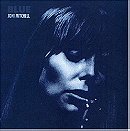
 168
168
 8.1
8.1
 0
0
